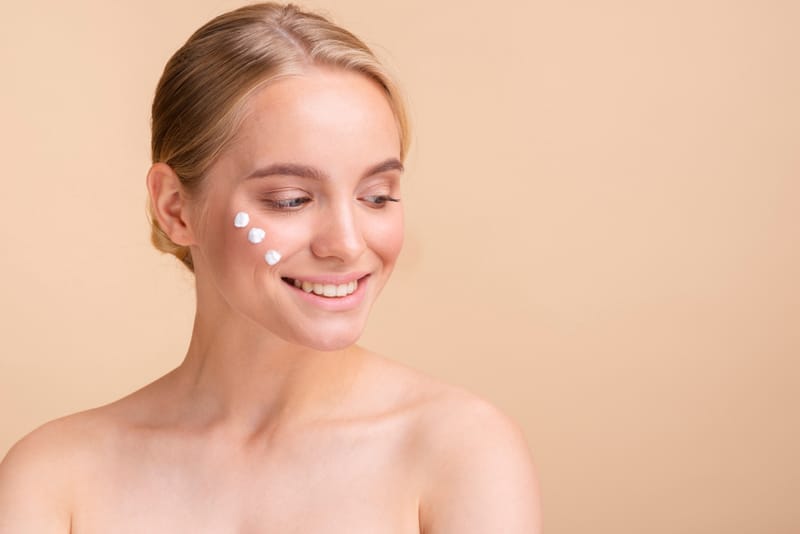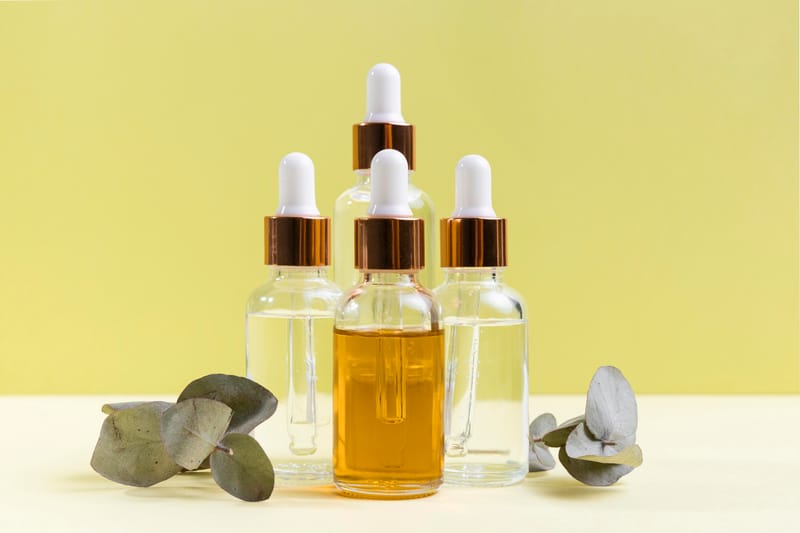Unlocking the Potential of Azelaic Acid: A Comprehensive Guide
Key Takeaways:
-Azelaic acid is a versatile skincare ingredient beneficial for treating acne, rosacea, and hyperpigmentation.
-It has anti-inflammatory, antibacterial, and keratolytic properties that contribute to its effectiveness.
-Understanding the proper usage and potential side effects of azelaic acid can maximize its benefits for various skin concerns.
What is Azelaic Acid?
Azelaic acid is a naturally occurring acid found in grains such as barley, wheat, and rye. It's a multi-functional skincare superstar with a range of benefits, particularly known for its anti-inflammatory, antibacterial, and antioxidant properties. Azelaic acid is used in dermatology for its ability to treat a variety of skin conditions, including acne, rosacea, and hyperpigmentation. It works by helping to unclog pores and refine the skin's surface, which can lead to a reduction in acne breakouts and an improvement in skin texture. Additionally, it inhibits the production of melanin, which can help to fade dark spots and even out skin tone. Azelaic acid is available in over-the-counter products as well as in prescription-strength formulations, making it accessible for those looking to incorporate it into their skincare routine.
The Science Behind Azelaic Acid
Azelaic acid operates on the skin with a dual mechanism that sets it apart from other skincare ingredients. Scientifically, it's recognized as a dicarboxylic acid, which means it has two carboxyl groups in its molecular structure, contributing to its effectiveness. Firstly, it acts as a gentle exfoliant, accelerating the turnover of skin cells and helping to unblock pores, thus reducing the formation of comedones and pimples. Secondly, it's a potent anti-inflammatory, which soothes irritation and reduces swelling and redness, making it particularly beneficial for conditions like rosacea. Additionally, azelaic acid has antimicrobial properties that target acne-causing bacteria, and it also inhibits tyrosinase, an enzyme involved in the synthesis of melanin, thereby preventing and treating hyperpigmentation. This multi-pronged approach to skin health is what makes azelaic acid a go-to ingredient for dermatologists and skincare enthusiasts alike.
Azelaic Acid for Acne Treatment
Azelaic acid is a game-changer in the realm of acne treatment, offering a multifaceted approach to clear skin. As a naturally occurring acid found in grains like wheat, rye, and barley, it's not only effective but also gentle, making it suitable for sensitive skin types. Its antibacterial properties directly combat the bacteria responsible for acne, while its ability to reduce keratin production helps prevent the clogging of pores that can lead to breakouts. Moreover, azelaic acid's anti-inflammatory qualities help to diminish the redness, an uneven skin tone and inflammation often associated with acne, providing a soothing effect. Its prowess in treating post-inflammatory hyperpigmentation also means that it helps to fade acne scars, promoting an even skin tone. For those struggling with acne, azelaic acid presents a well-tolerated and versatile option, attacking the problem from multiple angles to deliver clearer, healthier-looking skin.
Azelaic Acid and Hyperpigmentation
Azelaic acid emerges as a beacon of hope for those battling the stubborn shadow of hyperpigmentation. This multitasking molecule, naturally sourced from wholesome grains, wields its power by inhibiting the activity of tyrosinase, an enzyme pivotal in the production of melanin. This targeted action not only prevents the formation of new pigmented spots but also fades existing discoloration, including the dark marks left behind by acne, melasma, and other skin injuries. Its gentle exfoliating effect further assists in the shedding of pigmented cells, revealing a more uniform and radiant complexion beneath. Azelaic acid's anti-inflammatory properties also contribute to its effectiveness, as it calms the skin and reduces the likelihood of inflammation-induced pigmentation. With its dual action of preventing and correcting, azelaic acid stands out as a formidable ally in the quest for clear, even-toned skin.
Rosacea and Azelaic Acid
Azelaic acid is a dermatological knight for those facing the persistent flush of rosacea, a condition characterized by redness, swelling, and sometimes acne-like bumps. This versatile compound, derived from grains such as wheat, rye, and barley, is celebrated for its anti-inflammatory and antibacterial properties, which soothe the skin and reduce the redness and lesions associated with rosacea. By targeting the proliferation of skin bacteria and keratinocytes that can exacerbate the condition, azelaic acid helps to maintain a clearer, more balanced skin surface. Moreover, its ability to diminish skin sensitivity and fortify the skin barrier makes it a gentle yet effective treatment, suitable even for those with the most delicate complexions. Regular use of azelaic acid can significantly improve the appearance and comfort of rosacea-affected skin, offering a beacon of relief for sufferers seeking a reprieve from this chronic and often distressing skin ailment.
Incorporating Azelaic Acid into Your Skincare Routine
Incorporating azelaic acid into your skincare routine can be a game-changer, especially if you're grappling with rosacea, acne, or hyperpigmentation. This multitasking marvel works harmoniously with other skincare staples, gently exfoliating the skin while delivering its anti-inflammatory prowess. To seamlessly integrate azelaic acid, start with a lower concentration to allow your skin to acclimate, applying it after cleansing and toning. Use it consistently as part of your morning or nighttime regimen, layering it beneath moisturizer and sunscreen during the day. Over time, you'll likely notice a more even skin tone, reduced redness, and a calming of blemishes. As with any active ingredient, patience is key, and with diligent use, azelaic acid can unveil a clearer, more radiant complexion that feels as good as it looks.
Potential Side Effects of Azelaic Acid
While azelaic acid is generally well-tolerated and considered safe for most skin types, some individuals may experience adverse effects, particularly when first introducing the ingredient to their skincare routine. Common side effects can include skin irritation, such as itching, burning, or stinging sensations, as well as redness and dryness. These reactions are typically mild and often subside as the skin adjusts to the treatment. In rare cases, more severe irritation or allergic reactions may occur. It's important to conduct a patch test before fully incorporating azelaic acid into your regimen and to consult with a dermatologist if you have sensitive skin or if you experience persistent or severe side effects. Using the product as directed and starting with lower concentrations can help minimize potential adverse reactions, ensuring a smoother transition to reaping the benefits of azelaic acid for your skin.
Azelaic Acid vs. Other Skincare Ingredients
Azelaic acid stands out in the skincare world for its multifaceted approach to skin concerns, but how does it compare to other popular ingredients? Unlike benzoyl peroxide, which can be harsh and drying, azelaic acid offers a gentler alternative for treating acne with less risk of irritation. It's also a tyrosinase inhibitor, making it effective in reducing hyperpigmentation, a benefit not directly offered by salicylic acid, another common acne-fighting ingredient. Compared to retinoids, azelaic acid is less likely to cause redness and peeling, and it's safe for use during pregnancy, a time when many other potent skincare ingredients are off-limits. While hyaluronic acid is lauded for its hydrating properties, azelaic acid uniquely targets acne, rosacea, and pigmentation while still being compatible with moisturizing ingredients. Each skincare ingredient has its own set of benefits and limitations, and azelaic acid's well-rounded profile makes it a valuable player in a comprehensive skincare routine.
Real-Life Success Stories with Azelaic Acid
Real-life success stories with azelaic acid abound, painting a picture of a skincare savior that has transformed complexions and boosted confidence along with additional benefits. One such tale is of a woman plagued by persistent rosacea, who found solace in azelaic acid after countless other treatments fell short. Her redness and inflammation diminished remarkably, revealing a calm, even skin tone she hadn't seen in years. Another story features a young man battling with severe acne; azelaic acid not only cleared his blemishes but also faded the dark spots left behind, something he thought was impossible. These narratives are echoed in forums, blogs, and reviews, where users share their journeys, showcasing before-and-after photos that speak volumes of azelaic acid's efficacy. It's not just about clearer skin; it's about the life-changing impact of newfound self-esteem and the joy of finally finding a solution that works.
Summary
Azelaic acid is a dynamic and effective skincare ingredient that offers a multitude of benefits for various skin concerns. Its anti-inflammatory, antibacterial, and keratolytic properties make it a valuable addition to any skincare routine. By understanding how to use it properly and being aware of potential side effects, you can harness the full potential of azelaic acid for clear, healthy skin.
FAQ Section
Q: Can azelaic acid be used with other skincare ingredients? A: Yes, azelaic acid can be used with other skincare ingredients, but it's important to introduce new products gradually and be aware of potential interactions. For example, using azelaic acid with retinoids may increase skin sensitivity, so it's advisable to alternate their use or consult a dermatologist.
Q: How long does it take to see results from azelaic acid? A: The time it takes to see results from azelaic acid can vary depending on the skin concern being treated. For acne, some improvement may be noticeable within a few weeks, while for hyperpigmentation and rosacea, it may take several months of consistent use to see significant changes.
Q: Is azelaic acid safe for all skin types? A: Azelaic acid is generally safe for all skin types, including sensitive skin. However, individuals with particularly sensitive skin should start with a lower concentration and increase gradually as tolerated. It's always recommended to perform a patch test and consult with a dermatologist if you have concerns.
For more information about Azelaic Acid please click the link below!









